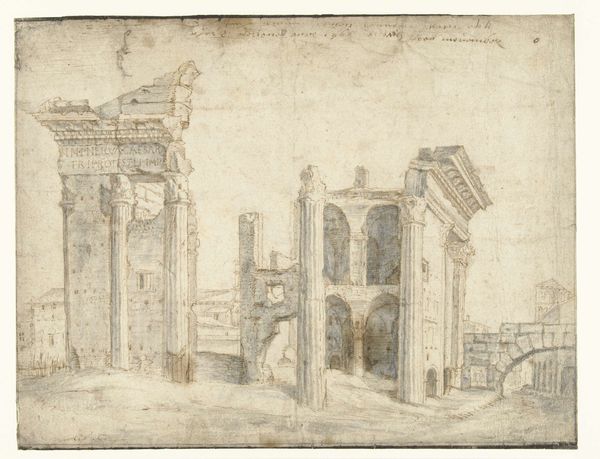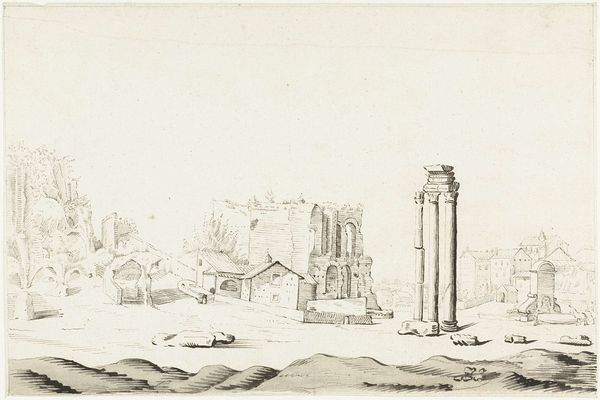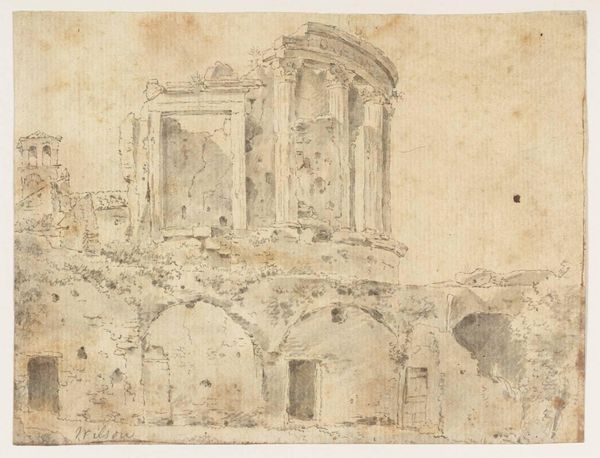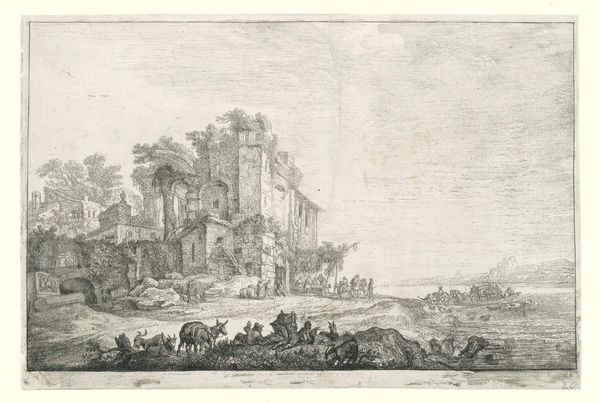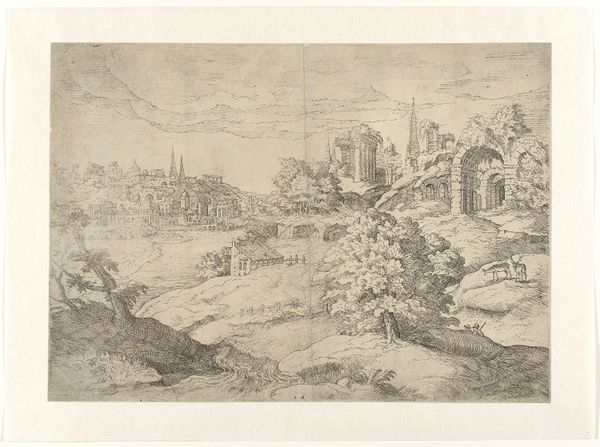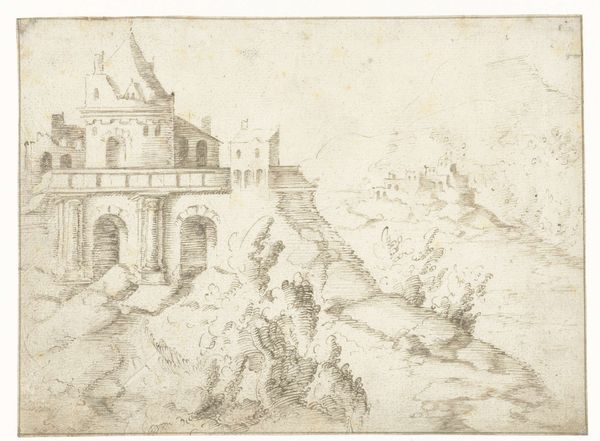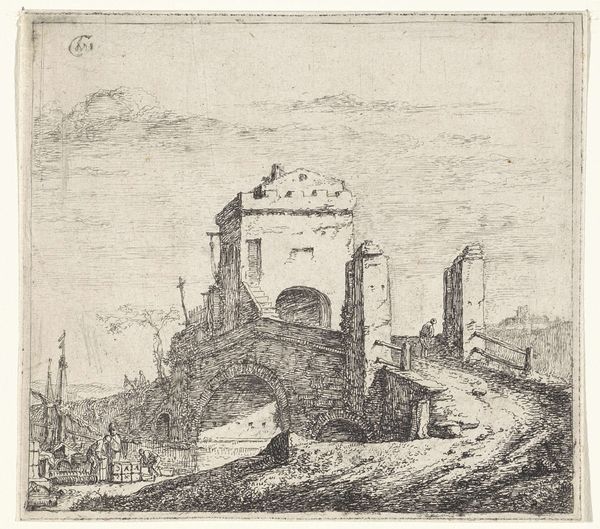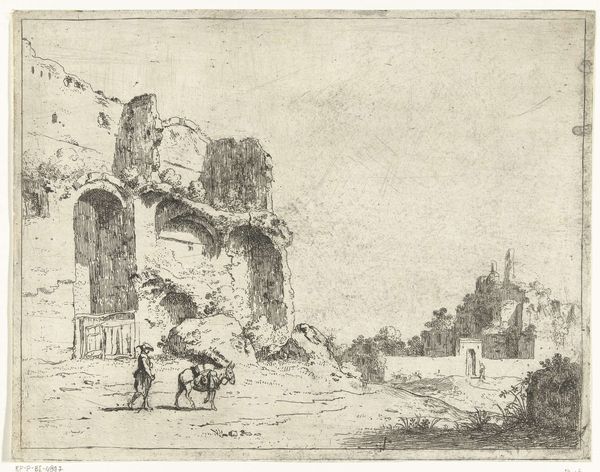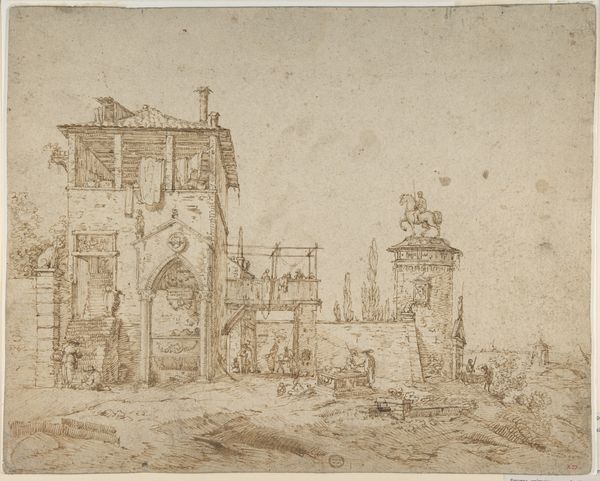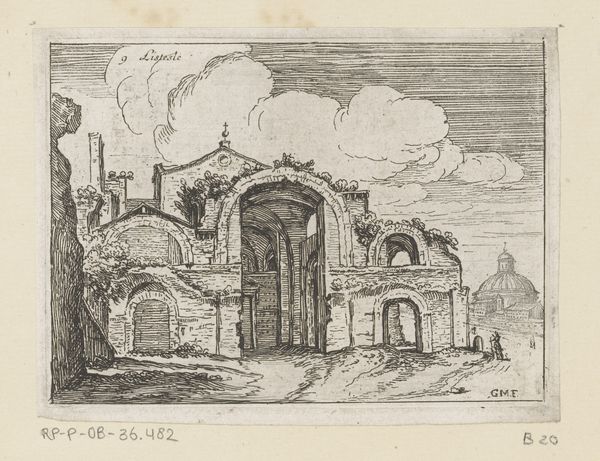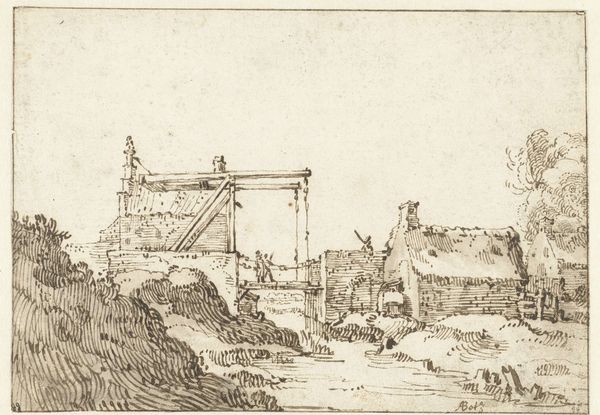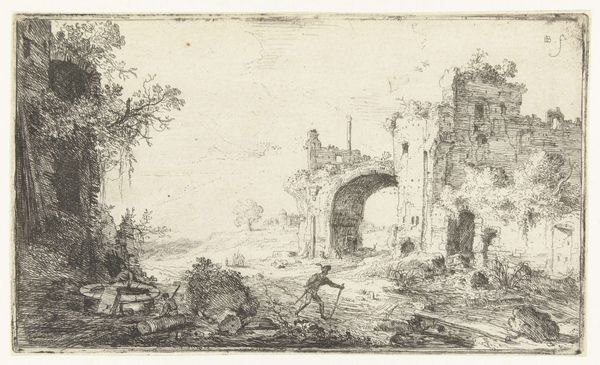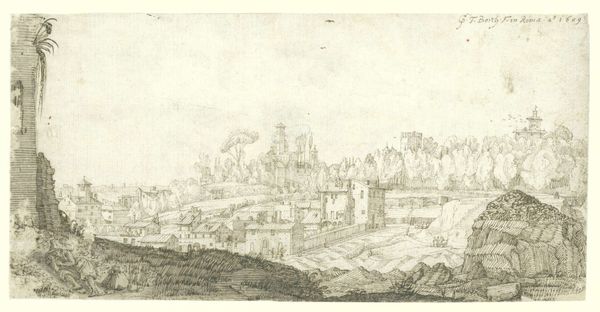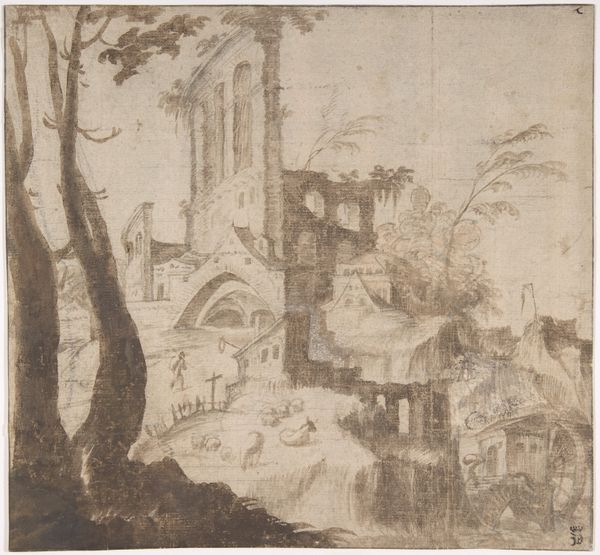
drawing, paper, graphite
#
drawing
#
narrative-art
#
baroque
#
landscape
#
etching
#
paper
#
form
#
ancient-mediterranean
#
line
#
graphite
#
cityscape
#
realism
Dimensions: height 215 mm, width 347 mm
Copyright: Rijks Museum: Open Domain
Cornelis Saftleven created this landscape with antique ruins in pen and brown ink sometime in the 17th century. It’s a vision of the past, but what does that past mean? Saftleven was Dutch, from Rotterdam, a society that had recently thrown off the rule of the Spanish Habsburgs and created a republic based on trade and relative religious toleration. The ruins depicted here, while not identifiable as any specific building, evoke the grand architecture of ancient Rome. In Saftleven’s time, Rome represented the epitome of empire and the cultural achievements of the classical world. As a northern European Protestant, how did he view that legacy? Was it a warning about the vanity of worldly power, or a source of inspiration for a new, non-imperial, commercial society? These are questions that art historians ask by studying an artist's life and times, looking at what they read, who their patrons were, and what political views they held.
Comments
No comments
Be the first to comment and join the conversation on the ultimate creative platform.
